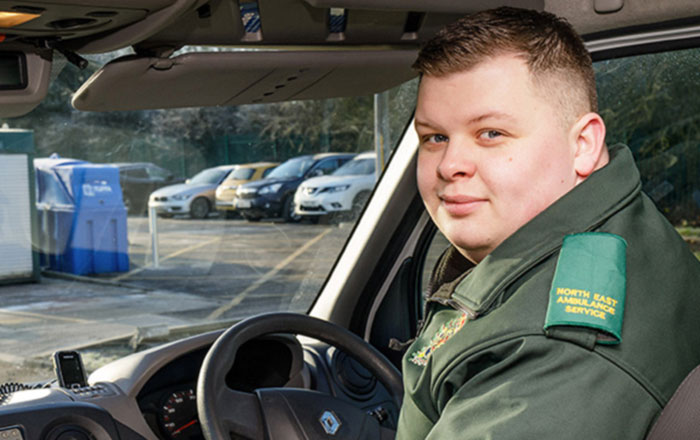How the process of applying works
The working environment in the NHS is unique, so work experience could be especially valuable when planning your career.
This is a general guide to work experience in the NHS. However, every NHS organisation will have its own specific procedures that may differ slightly.
Many NHS organisations will have agreements with local schools or colleges on work experience placements. Your teacher or careers adviser may be able to help you secure a placement. If you do not have any luck, don’t give up, there are other options available.
You’ll find details of NHS trusts in your area on nhs.uk. Ask to speak to someone in the human resources (HR), voluntary services or learning and development departments and explain that you are looking into a career in the NHS and would like to do some work experience. You may be referred to a specific person within the trust who organises work or voluntary placements.
It will help if you have an idea of what sort of career you’re interested in. That way the NHS organisation can find you a placement that suits you and where you’ll learn as much as possible. If you’re still unsure about what you want to do, talk to your teacher or careers adviser or take another look at our career mapper quiz or our A-Z section of careers in the NHS. Following your discussion with the trust, it is likely that they’ll send you an information pack and application form.
Fill in the application form as fully as possible and check if there is a closing date. Some NHS trusts treat applications for work experience like job applications, so make sure you don't leave it too late.
Different trusts will have different procedures, but most will have a summary of work placement rules with the application form. If you have a CV, don't forget to include it with your application form. For advice on writing a CV, visit the National Careers Service website.
There may be all sorts of reasons why you’re not offered a placement. It could simply be down to a lack of places, a shortage of supervisors or having too many students on placement already. Unfortunately, some trusts just don’t offer work experience. But don’t lose heart; you could always try other trusts in your area and even explore opportunities in private and voluntary healthcare. You can also find thousands of volunteering opportunities in health and social care at doit.life/volunteer.
You may be accepted without an interview, but if you are asked to attend it can be a valuable part of the work experience process. Prepare for it just like you would do for any other job interview; dressed smartly, on time and prepared to ask some questions of your own. For advice and top tips on interviews, visit the National Careers Service website.
You’ll be sent a confirmation letter, health questionnaire, and an honorary contract for you and your parent/guardian to sign if you are under 18. The questionnaire and honorary contracts are legal requirements designed to protect not just you but the patients and staff too. This contract will explain where and when to go for your placement and who to call if you’re sick. There will also be a code of conduct explaining the ‘dos and don’ts’ within the NHS trust.
Before your placement starts, you may be asked to come along and see where you’ll be working, meet your supervisor and to arrange for your uniform (if required). Most students find this really useful, and say it makes them feel more confident when they turn up for their first day. You will probably also get your photo-identity badge at this time too. After this, you’ll be ready to start your placement.
Don’t forget to visit our work experience stories section for more information on what to expect on your placement.
The first thing to remember is to enjoy yourself! Try to get the best out of the opportunity:
- Be polite and punctual. If you don’t know anything, ask.
- Show you care. Seeing a smiling face can make all the difference to a patient.
- Ask for things to do. If you’re helpful you’ll become part of the team quicker.
- Keep a diary of what you do and see as you go along (always remembering patient confidentiality of course). This might really help for your UCAS personal statement or when applying for a job.
- Finally, share your experience with the other Step into the NHS registrants by submitting your story on our work experience pages.
How was it? You may have an exit interview or an evaluation form to fill in to reflect on what you have achieved and how useful you found the placement. Don’t forget to take a note of your supervisor’s name. They can give you a reference, if you decide to continue your career in the NHS.


